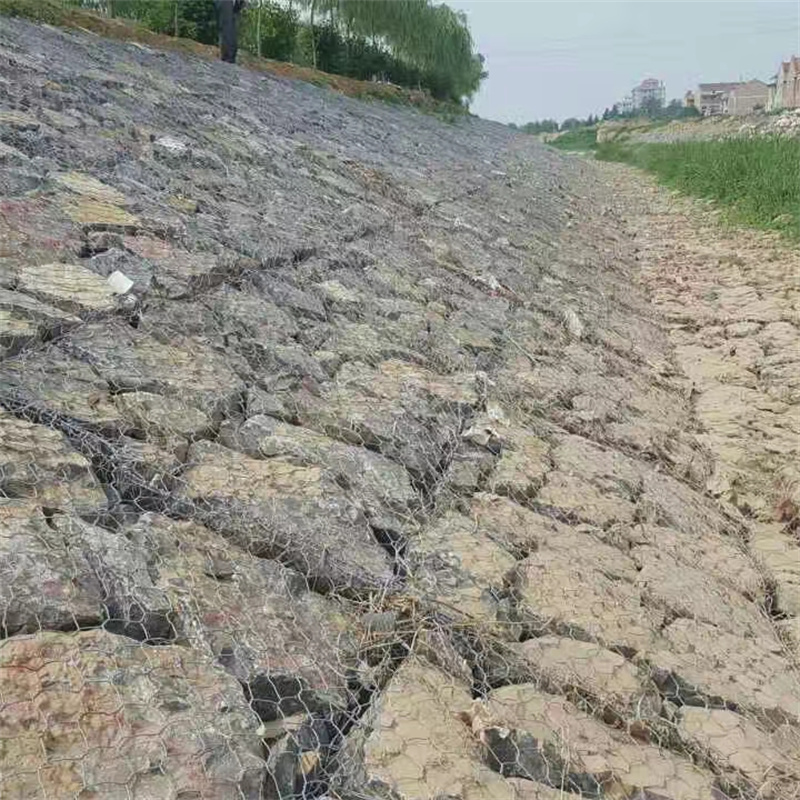Nov . 16, 2024 18:52 Back to list
best stone for gabion walls manufacturers
Choosing the Best Stone for Gabion Walls A Guide for Manufacturers
Gabion walls, known for their strength and versatility, have become a popular choice in various construction projects, ranging from landscape design to civil engineering. These structures are formed using wire mesh baskets filled with stones, providing effective solutions for erosion control, drainage, and retaining walls. However, the effectiveness and durability of gabion walls largely depend on the type of stone used. This article aims to guide manufacturers in selecting the best stone for gabion walls, taking into consideration various factors that influence performance.
1. Stone Size and Shape
The first consideration in selecting stones for gabion walls is the size and shape of the material. Ideally, stones should be angular and between 4 to 8 inches in diameter. This size range ensures that the stones fit snugly in the gabion baskets, providing stability and reducing movement. Angular stones interlock better than rounded stones, enhancing the overall structural integrity of the wall. Manufacturers should also consider the gradation of the stone, which should allow for proper drainage while avoiding voids that may compromise stability.
2. Material Composition
The type of stone used can significantly impact the longevity and durability of gabion walls. Common materials include limestone, granite, and river stone, each offering unique properties. Limestone is readily available and cost-effective, making it a popular choice, but it may be susceptible to weathering. Granite, on the other hand, is extremely durable and resistant to erosion, making it ideal for projects that demand longevity. River stone, while aesthetically pleasing, may not be as stable due to its rounded shape. Manufacturers must assess the environmental conditions and intended use of the gabion walls to choose the most suitable stone type.
3. Weight and Density
The weight and density of the stones are critical factors that influence the performance of gabion walls. Heavier stones provide more mass and stability, which is essential for the wall’s ability to resist lateral forces, such as soil pressure and water flow. Light stones may lead to movement or failure of the structure during extreme weather conditions. Therefore, manufacturers should opt for stones that strike a balance between weight and ease of handling, ensuring that the walls are both strong and manageable during construction.
best stone for gabion walls manufacturers

The chosen stone should be capable of withstanding environmental factors such as freeze-thaw cycles, moisture, and chemical exposure. Stones that are highly porous may absorb water, leading to frost damage during cold weather. Durable stones like granite and certain types of basalt are less susceptible to weathering and thus remain an excellent choice for long-lasting gabion walls. Manufacturers should perform tests for weather resistance to ensure the selected material can endure local conditions over time.
5. Aesthetic Considerations
While functionality is paramount, the aesthetic appeal of gabion walls should not be overlooked. The color, texture, and appearance of the stones can significantly influence the visual impact of a project. Manufacturers can choose visually attractive stones that complement the overall landscape or architectural design, thereby enhancing the property’s value.
6. Cost Efficiency
Lastly, the economic aspect of selecting stone for gabion walls is crucial for manufacturers. The availability of certain types of stones can influence costs, so it’s essential to evaluate local sourcing to minimize transportation expenses. By balancing quality with cost, manufacturers can provide clients with effective and economically viable gabion wall solutions.
Conclusion
Selecting the best stone for gabion walls is a multifaceted decision that requires careful consideration of size, shape, material, weight, weather resistance, aesthetics, and cost. By staying informed about the properties of different stones and understanding their implications on the performance of gabion walls, manufacturers can create resilient structures that meet both functional and aesthetic demands. As the demand for sustainable and effective construction solutions grows, a well-chosen stone will undoubtedly contribute to the long-term success of gabion wall projects.
-
Visualizing Gabion 3D Integration in Urban Landscapes with Rendering
NewsJul.23,2025
-
The Design and Sustainability of Gabion Wire Mesh Panels
NewsJul.23,2025
-
The Acoustic Performance of Gabion Sound Barriers in Urban Environments
NewsJul.23,2025
-
Mastering the Installation of Galvanized Gabion Structures
NewsJul.23,2025
-
Gabion Boxes: Pioneering Sustainable Infrastructure Across the Globe
NewsJul.23,2025
-
Custom PVC Coated Gabion Boxes for Aesthetic Excellence
NewsJul.23,2025
-
Installation Tips for Gabion Wire Baskets in Erosion Control Projects
NewsJul.21,2025






